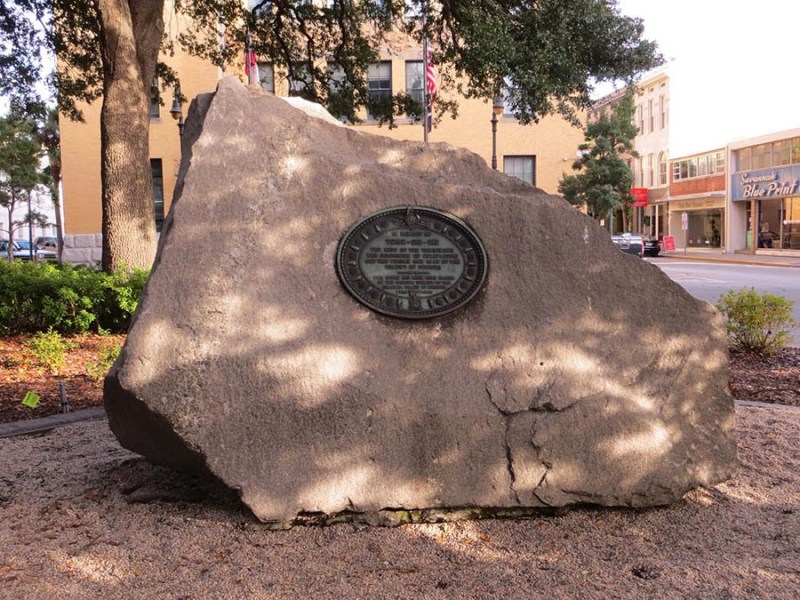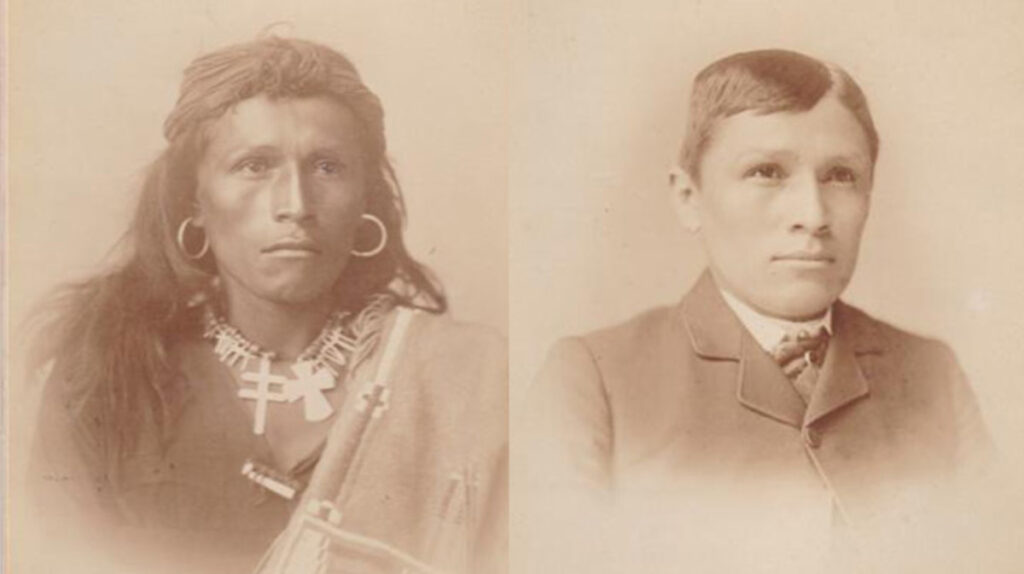How Oglethorpe Nem Yanked Savannah

[You can listen to me read it instead. Just press play.]
Europeans first arrived in this country in 1492. So, by the time James Oglethorpe and his crew pulled up in Georgia in 1733, white folk had already been here for more than 200 years. I’ll be referring to these white folk as “colonists” and “colonizers.”
That ain’t long enough for white folk to outnumber Native Americans, but it’s long enough to make a lot of mixed-race babies. These weren’t all Disney versions of a Pocahontas love story either; white men very often forced it.
Prior to Oglethorpe’s arrival, the Creeks and Yamasees owned this particular part of South Carolina and Georgia. It ain’t known for sure, but it’s believed that Tomochichi was originally from the Creek tribe.
Tomochichi disagreed with his native tribe on how to go about dealing with colonists. Oglethorpe wasn’t his first encounter with colonists though. He’d encountered them before in South Carolina too (before it was renamed South Carolina, of course).
Because they disagreed, Tomochichi and about 200 others broke away from their native tribes and formed the Yamacraw. Tomochichi was their leader and was intent on making deals with colonists. My personal belief is that there was a little greed there (he wanted to get rich), a sense of reality (white folk ain’t going nowhere), and some false hope (maybe we can live as equals).
Let’s back up a bit. During those 200+ years, there had been a lot of fighting between Natives and Europeans. You also gotta peep white folks’ strategy, which was done all over the world (and still to this day). They make your people out to be less than, inferior. They call you savages, uncivilized, thugs, etc.
They build schools, churches, and government offices. They have plenty liquor and guns and other technologies that you ain’t got yet. They got the flashy stuff and they seem more modern and organized. They find a few of your kind who are wide-eyed at the European way of life, and they strip ’em of their culture and clothe them in European culture.

That picture is from History.com‘s article, “Government Boarding Schools Once Separated Native American Children From Family.”
As is the case all over the world, from way back then until today, you have some groups who REFUSE to give in to the demands on colonizers. (When you refuse, the response is war.) Everybody don’t refuse though. Some wanna make deals with the colonists, like Tomochichi. Colonists, wherever they go in the world, ALWAYS manage to find a Tomochichi.
According to the Georgia Historical Society, Tomochichi “was not afraid of the new Georgia colonists but chose to use caution in his interactions with them.” This, to me, demonstrates the balance of power. Why else would you use caution in your own house?
It’s because you know what they’re capable of. It’s because you remember the war of 1717 in South Carolina, which was only 16 years before Oglethorpe’s arrival. You remember how bloody that war was…most of which was YOUR people’s blood. (Native Americans and many enslaved Africans were allies in that war.)
I personally don’t care what sources say. Tomochichi was scared. And, instead of refusing white folk’s demands and risking another war, he figured the best bet was to cooperate with them.
Mary Musgrove, along with Tomochichi, is also praised for maintaining “peace and fair trade.” (I’m quoting the Georgia Historical Society there.) Her mama was Native American and her father was white. Her mother named her Coosaponakeesa, but she adopted the name Mary Musgrove after being brought up around her father’s family where she attended their schools and churches. She became a Christian and learned to speak English just as well as her native tongue.
“She found that she could be useful to the English if she adopted their customs and in essence set aside her Native heritage to pursue and work in the best interest of the colonists. She did not, however, foresee the level of degradation she would face in later years from the very people she helped” (The Corinthian Research Journal).
Long story short, Oglethorpe hired her as his interpreter, and she helped make the Savannah deal between Oglethorpe and Tomochichi. Because Tomochichi and Oglethorpe were at odds for a second. The original agreement was that “no white settlements would be allowed past the Savannah River in South Carolina.” That was Yamacraw land. Oglethorpe ‘nem decided they wanted that too though.
A treaty is an agreement on paper. History proves that colonists have no issue breaking treaties. They make ’em then break ’em.
After Oglethorpe broke his treaty with the Yamacraw, Mary talked Tomochichi into forming another treaty with them. This one basically said Oglethorpe ‘nem can have get their way as long as the Yamacraw got to keep their land. Again, as long as colonists get their way, there’s peace. If not, there’s war.
Mary got a lot of money and prestige out of that deal. Land too. After plenty back and forth, including traveling way to England to plead her case, she ended up losing her land. In that process, they called that woman a witch, pulled a gun on her, and everything. She fought back though–physically and legally. After losing her land, she gave up in helping white folk then. Though I don’t agree with many of her decisions, she was a helluva woman and warrior who’s definitely worth learning more about.
I can’t find the exact date, but we know that colonists eventually broke their other treaty with the Yamacraw too. So when I say colonists “yanked” the land, this is what I mean: They don’t play fair. Over time, natives come to understand that. So you have people like Tomochichi and Coosaponakeesa (aka Mary Musgrove), who’d rather make deals than cause war.
Owning the whole state was the plan from the jump, just as owning this whole country was. The yank is in the intention, in the post-traumatic stress from previous bloodshed, the broken promises. Indigenous people all over the world have this exact same testimony: Just because an agreement is on paper, that don’t make it right or permanent. If they want it, laws will be made to take it and guns will be used if you stand in the way.
If you like this post, you’ll love the book. Get yours. Also consider becoming a Krak Teet Patron to support all the love + time put into the research and writing.

